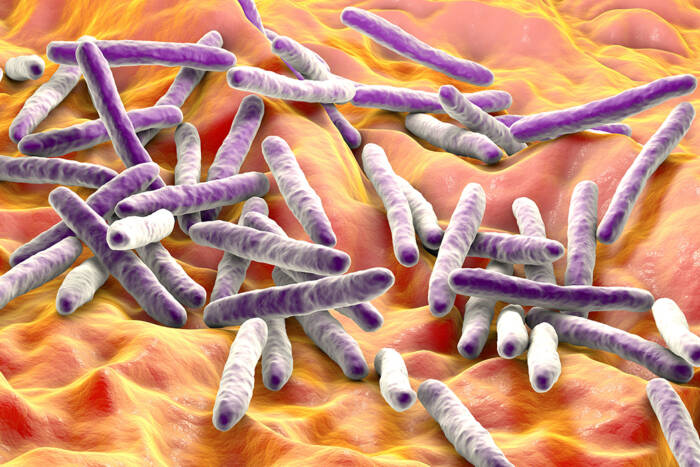Rockefeller University researchers shed light on brain disorder
Findings suggest new treatment for autoimmune neurological disease
 A rare but devastating neurological disorder may be caused partly by immune-system cells that are spurred into action against tumors elsewhere in the body and eventually attack the brain, Rockefeller University researchers report. The scientists also found that the neurological damage from these cells, called cytotoxic T lymphocytes (CTLs), might be lessened by giving patients an immunosupressant drug.
A rare but devastating neurological disorder may be caused partly by immune-system cells that are spurred into action against tumors elsewhere in the body and eventually attack the brain, Rockefeller University researchers report. The scientists also found that the neurological damage from these cells, called cytotoxic T lymphocytes (CTLs), might be lessened by giving patients an immunosupressant drug.
 In addition to suggesting a treatment for the disorder, known as paraneoplastic cerebellar degeneration (PCD), the finding could have wide significance for common autoimmune diseases like multiple sclerosis (MS). Manipulation of CTLs also might provide ways to coax the body to launch a stronger immune attack against tumors. The research was conducted in the laboratory of Rockefeller’s Robert Darnell, M.D., Ph.D., an associate professor and head of the Laboratory of Molecular Neuro-Oncology, and is reported in the Dec. 29 issue of theAnnals of Neurology.
In addition to suggesting a treatment for the disorder, known as paraneoplastic cerebellar degeneration (PCD), the finding could have wide significance for common autoimmune diseases like multiple sclerosis (MS). Manipulation of CTLs also might provide ways to coax the body to launch a stronger immune attack against tumors. The research was conducted in the laboratory of Rockefeller’s Robert Darnell, M.D., Ph.D., an associate professor and head of the Laboratory of Molecular Neuro-Oncology, and is reported in the Dec. 29 issue of theAnnals of Neurology.
“This study provides strong evidence that CTLs are involved in the development of PCD, and it shows that we can affect this CTL activity,” Darnell says. “Knowing this opens up the possibility of blocking CTLs to treat the disease. In addition, if these cells are playing a role in tumor immunity, we might be able to boost their effectiveness.”
PCD is a paraneoplastic neurological disorder (PND), a type of neuronal degeneration that occurs as an indirect result of cancer somewhere in the body. PCD in particular causes severe neurological function in a small number of women with breast or ovarian cancer. Those who have it suffer from severe ataxia–a condition that makes it appear as if they are falling-down drunk all the time–and they cannot coordinate the muscles in their bodies, which makes it difficult to walk, talk and eat.
Last year, Darnell and colleagues made a landmark discovery when they found that patients with PCD have a specific mechanism mediating natural immunity to tumors, and in the current report they provide evidence that this immunity ultimately results in PCD. Breast and ovarian cancer tumors sometimes express a protein called cdr2, which usually is found only in the brain. Since the immune system does not normally penetrate the blood-brain barrier, killer immune cells are able to recognize the cdr2 as foreign and are activated to attack it. (Click on the image to see a Quicktime movie explaining how the body activates tumor immunity.)
In some patients, these activated immune cells manage to cross the blood-brain barrier and home in on certain brain cells, called Purkinje neurons, that express cdr2. Because these neurons are in the cerebellum, the resulting damage impairs the patient’s motor skills.
Researchers already suspected that PCD was an autoimmune disorder because they had detected antibodies to Purkinje cells in the blood and cerebral-spinal fluid (CSF) of PCD patients. However, attempts to block the antibody response were therapeutically ineffective, causing Darnell and colleagues to question the role of antibodies in disease pathogenisis.
Upon learning of the role of activated T cells in PCD, Darnell and his co-authors–first author and Biomedical Fellow Matthew Albert, Ph.D., and Postdoctoral Fellow Lisa Austin, Ph.D.–began exploring treatment directed at eliminating these cells from the CSF. The drug they chose for this was an immunosuppressant medication called tacrolimus (FK506). In the study, tacrolimus appeared to reduce the number of immune cells activated to respond to the perceived threat by a foreign substance. Although there was a fear that reducing CTLs might weaken the body’s fight against cancer, targeting them with tacrolimus did not seem to result in tumor recurrence.
“Our data suggests that tacrolimus may be safely given for brief periods in PND patients without permitting the tumors to come back,” Darnell says. “This could be the first effective treatment for a disease that has so far been largely out of reach.”
The researchers also noted the similarities between PNDs and other autoimmune disorders such as multiple sclerosis. In both PND and MS, the activation of neuron-specific T cells outside of the nervous system begins a process that leads to damage inside the nervous system.
“Understanding the cascade of events that result in paraneoplastic neurological disorders like PCD may be important to treating a range of autoimmune neurological disorders,” Darnell says. “Insights into a rare disease can have an impact far beyond the patients it may afflict.”
The research received support from the U.S. Department of Defense, the National Multiple Sclerosis Society, and a NIH Medical Scientist Training Program grant, (GM-07739). Clinical work at the RU Hospital was supported through a General Clinical Research Center grant from the National Center for Research Resources at NIH.


